Features
The Hong Kong Alliance in Support of Patriotic Democratic Movements of China (HKASPDMC)’s refusal to hand over information The Court of Final Appeal (CFA) overturned the trial judgment
Published
7 months agoon

“A “woman” cannot be interpreted as someone who “reasonably believes” that she is a woman, and a deer cannot become a horse because someone “reasonably believes” that it is a horse” – Tonyee Chow Hang-tung, arguing in the appeal to the Court of Final Appeal.
“Some people may say that the king’s lack of clothes is obvious to everyone, so what difference does it make whether or not it is said? … If we want to see changes in the outside world, we cannot remain unaware of them.”
“We must continue to burst the lies of power.” ‘No matter how many bubbles of lies, they are still fragile.’ ”It is not impossible to win, even if we have to pay a price.” — Written speech by Tonyee Chow Hang-tung
Introduction: Dissolved Hong Kong Alliance in Support of Patriotic Democratic Movements of China (HKASPDMC) Accused of Two Offenses
The Hong Kong Alliance in Support of Patriotic Democratic Movements of China, or the Hong Kong Alliance in Support of Patriotic Democratic Movements of China (HKASPDMC) for short, is a former pan-democratic political organization in Hong Kong. It was founded on May 21, 1989, in the midst of the global Chinese mass rally in support of the 1989 pro-democracy movement in Hong Kong. From 1990 to 2019, the HKASPDMC has been organizing the June Fourth Rally and the Victoria Park Candlelight Vigil for 30 consecutive years to commemorate the June Fourth Incident and to express its insistence on the protection of China. For the first 22 years of its existence, the HKASPDMC was chaired by Mr. Szeto Wah, who was regarded as a lifelong patriot.
On August 25, 2021, the National Security Bureau of the police wrote to the Standing Committee and the person-in-charge of the HKASPDMC, stating that based on the police investigation, the Commissioner of Police had reasonable grounds to believe that the HKASPDMC was an “agent of a foreign country”, and requesting the HKASPDMC to submit the information and the relevant supporting documents to the Police Headquarters in writing, in person and in accordance with the requirements of the 5th Schedule of the 43rd Schedule of the Hong Kong National Security Law, within 14 days (September 7th).
On September 7, four members of the Standing Committee of the HKASPDMC submitted a letter to the Police Headquarters in Wan Chai, explaining their refusal to submit information on the membership and finances of the HKASPDMC as requested by the Police’s National Security Bureau. In its reply to the Police, the HKASPDMC said that the HKASPDMC was not a “foreign agent” and the Police had no right to request the HKASPDMC to provide the information. The HKASPDMC also considered that the Police had committed a legal error in requesting the HKASPDMC to provide the information, and was dissatisfied that the Police had not provided any justification for the refusal in the letter, which was considered to be a violation of the principle of natural justice.
On September 8, the Vice-Chairman of the HKASPDMC, Ms. Tonyee Chow Hang-tung, and members of the Standing Committee, Mr. Leung Kam-wai, Mr. Tang Ngok-kwan and Mr. Chan To-wai, were arrested by the Police National Security Bureau (NSB) at different locations in the morning and detained for investigation. Four of them were detained for investigation. Later, together with Tsui Hon-kwong, five people were charged.
On September 25, 2021, the EGM passed a resolution to dissolve the organization.
Subsequently, Leung Kam Wai and Chan To Wai, who had already been imprisoned for more than the maximum sentence for the alleged offense, pleaded guilty and were sentenced to three months’ imprisonment and released immediately. Tonyee Chow Hang Tung, Tang Ngok Kwan and Tsui Hon Kwong pleaded not guilty and were convicted on March 11, 2023 and sentenced to four and a half months’ imprisonment. Their appeals to the High Court were dismissed and they finally appealed to the Court of Final Appeal.
At present, the HKASPDMC, Lee Cheuk-yan, Albert Ho and Tonyee Chow Hang-tung are still being prosecuted for one count of “inciting subversion of state power”. The case has been referred to the High Court, and the trial date is tentatively set for May 6 this year, but the court said it may be postponed due to the judge’s lack of time to hear the case.
A Rare Small Victory
The HKASPDMC’s refusal to hand over information was unanimously ruled in favor of its appeal by the Hong Kong Court of Final Appeal (CFA) on June 6, with the convictions of Tonyee Chow Hang-tung, then vice-chairman of the HKASPDMC, and two former members of the Standing Committee of the HKASPDMC, namely, Tang Yuek-kwan and Tsui Hon-kwong, being quashed. The three were originally convicted and jailed for refusing to submit information about the organization to the police and were charged with violating the implementation details of the Hong Kong National Security Law. This is the first time that a case involving the Hong Kong National Security Law has been won at the Court of Final Appeal and the convictions quashed, a rare victory for Hong Kong’s pro-democracy camp.

The first case involving the implementation details of the Hong Kong National Security Law.
The HKASPDMC, famous for hosting the annual June 4 Candlelight Vigil in remembrance of the 1989 Tiananmen Square Incident, was disbanded in 2021 under the shadow of China’s enactment and full implementation of the Hong Kong National Security Law. Prior to its dissolution, the Hong Kong police’s National Security Bureau demanded that the organization provide information on its operations and finances, such as its members and donors, and accused it of being a “foreign agent” and of receiving HK$20,000 from an unnamed organization on suspicion of having ties to an overseas pro-democracy group. However, the HKASPDMC refused to cooperate, arguing that the authorities had arbitrarily labeled pro-democracy organizations as foreign agents and had no right to request information from them.
In March 2023, the Hong Kong Court of Appeal in West Kowloon stated that based on the background of the Alliance, the activities it organized and its relationship with people in Hong Kong and overseas over the past years, the Police had reasonable grounds to believe that the Alliance was a foreign agent. The judge found all the defendants guilty of the charge, as he considered that the activists were obliged to comply with the notification requirement to provide information, but did not intend to do so. But now, two years later, five judges of the Hong Kong Court of Final Appeal have unanimously held that the prosecution’s actions had “denied the defendants a fair trial” and ruled against the Department of Justice, which prosecuted on behalf of the Government.
In their judgment, the five Hong Kong CFA judges, headed by Chief Justice Andrew Cheung, said that the prosecution’s removal from evidence of the only material that would have established that the Alliance was a foreign agent was counterproductive to the prosecution’s case and “deprived the appellants of their right to a fair trial, resulting in their conviction involving an unfair trial”. Specifically, the Department of Justice had to prove that the HKASPDMC was in fact an “agent of a foreign state”, and the invocation of “public interest immunity” to substantially cover up the NSA’s investigation report denied the defendant access to the prosecution’s case, deprived him of his right to a fair trial, and rendered the Department of Justice’s conviction unsafe without any evidence to substantiate its case.
The Court also pointed out that the trial magistrate, Mr. Justice Lo Tak Chuen, had emphasized that in order to “effectively” safeguard national security, it was sufficient for the police to have reasonable grounds to believe that the HKASPDMC was an agent, and that the High Court Judge, Ms. Justice Lai Yuen Kei, had further ruled on appeal that the Defendant was unable to challenge the validity of the police notification letter, and that the ruling of the High Court Judge was wrong in both cases. The Court of Final Appeal pointed out that the courts could not ignore the protection of rights in the discharge of their duty to safeguard national security. This is the first time that a national security defendant has been acquitted in a final judgment. In the past, the Court of Final Appeal has lost national security cases, including the bail case of Jimmy Lai, the bail case of the defendant in the “Guardians of the Sheep Village” case, and the case of Lui Sai-yu’s commutation of sentence. Before leaving the court, Chow smiled and raised the “V” sign. Outside the court, Tang said “justice lies in the hearts of the people”, while Tsui replied that “unjust incarceration is untenable”.
From an oasis of rule of law to a “police state
During a hearing at the Hong Kong Court of Final Appeal in January this year, Tonyee Chow Hang-tung defended herself in court, saying that the case highlighted what a police state is, and that a police state is the result of the courts’ connivance of such abuse of power. This connivance must stop immediately. China’s state security apparatus, which has always operated largely in the shadows, has been expanded in recent years by the Communist Party as a defender against threats to Communist rule, public order and national unity. With the introduction of the Hong Kong National Security Law a few years ago, China’s police state was rightfully extended to Hong Kong, where the Chinese security agencies will not be subject to the supervision of local laws and courts.
The open and unregulated nature of the security agencies’ operations represents a significant change for Hong Kong, which has long labeled itself an oasis of law and order. Hong Kong’s national security law introduced vaguely defined offenses, such as secession and collusion, that could well have been used to stifle protests. This was also the case when, on the first full day of the law, the Hong Kong police arrested protesters as a demonstration of the new powers given to the police under the law.
Although the Court of Final Appeal overturned the original verdict, Tonyee Chow Hang-tung , Tang Yuek Kwan and Tsui Hon-kwong were sentenced to 4.5 months in prison for “failing to comply with the notification requirement for the provision of information”, and all three of them have already served their sentences. In fact, for this kind of situation where the sentence is very short and the case is still under appeal, it is entirely possible to apply for bail. However, I do not know whether it is because the application of the Hong Kong National Security Law has increased the political sensitivity of the case that bail was not granted in this case. And it seems that there is no follow-up protection for the three people who have already served their sentences, so one cannot help but ask – is justice belatedly done, or is it still justice?
The June 4 Candlelight Vigil in Victoria Park was an annual event in Hong Kong to commemorate the victims of the June 4 Incident, organized by the HKASPDMC every year from 1990 to 2019, and held at the hard-surface soccer pitch in Victoria Park. The event was once the world’s largest June 4 commemoration, with tens to hundreds of thousands of participants each year. Hong Kong used to be the only place in Chinese territory where the victims of the June 4 Tiananmen Square incident in 1989 could be publicly commemorated, but in recent years the commemoration has gone underground. Since the central government imposed national security laws on Hong Kong in 2020, almost all forms of dissent have become criminalized in the city. As of early March this year, Hong Kong authorities have arrested 320 people on charges of endangering national security, of whom 161 have been convicted.
The Future of National Security Law in Hong Kong’s Judicial Practice
As a high standard common law jurisdiction, Hong Kong should strike a reasonable balance between safeguarding national security and protecting human rights. Specifically, it should not only implement the Hong Kong National Security Law, but also respect and protect the requirements of the Basic Law and the International Covenant on Civil and Political Rights (ICCPR). Under common law principles, the law should be understood as a whole. Therefore, when the court interprets the elements of Schedule 5 to the legislation, it should not only consider the textual formulation of the Schedule, but should also consider the elements of Schedule 7 to the legislation where necessary and relevant. For example, in applying to the Court for an order to furnish information or produce material, the judge has to be satisfied that there are “reasonable grounds” for suspecting that a person is in possession of the information or material and that the information or material is likely to be relevant to the investigation.
Of course, the Court of Final Appeal’s ruling does not undermine the police’s investigative powers in national security cases. Even if it cannot be proved for the time being that a person or an organization belongs to “a foreign agent, a Taiwanese agent, or an agent or manager thereof”, the police can still apply to the court on the basis of “reasonable belief”, and after sufficient evidence has been provided, the court will issue an order for the provision of information or the production of materials in accordance with the law. This arrangement is in line with the propriety of the legal procedures and demonstrates the respect and protection of human rights.
Commenting on the final judgment of the case, Mr. Sun Qingnuo, Deputy Director of the Office of National Security of the Central People’s Government in the Hong Kong Special Administrative Region, when asked whether there were loopholes in the Hong Kong National Security Law that needed to be amended, said that the Hong Kong National Security Law could be improved continuously, including through the National People’s Congress (NPC)’s interpretation of the Basic Law. On the other hand, Professor Albert Chan of the Faculty of Law of the University of Hong Kong is of the view that the case of the HKASPDMC only involves the interpretation by the Court of Final Appeal of individual provisions of the implementation details, and does not involve the interpretation of the Basic Law by NPC. Mr. Ronny Tong, a member of the Executive Council, also analyzed that an interpretation of the Basic Law by the NPC is unlikely at this stage. The SAR Government has already indicated that it will study the judgment and the relevant legal principles, and examine how to further improve the relevant legal system and enforcement mechanism, so as to more effectively prevent, stop and punish acts endangering national security, and to continue to strengthen law enforcement power.
In recent years, the Hong Kong Government has repeatedly emphasized on different occasions that safeguarding national security is a top priority for Hong Kong. The protection of national security is not a work in progress, but a work in progress. Meanwhile, the international community has never ceased to worry that the Hong Kong National Security Law will further undermine civil liberties and fundamental freedoms, and a number of international organizations have been committed to calling for the repeal of this law and for the cessation of interpreting co-operation with United Nations agencies as a threat to national security. It is conceivable that after the first final victory for the defendants of the Hong Kong National Security Law, these two forces will further tussle with each other – whether Hong Kong’s long-proud judicial independence will be reduced to a tool of the Hong Kong National Security Law, or whether this case will rekindle Hong Kong people’s hopes for the re-establishment of a civil society is still very much an unknown. This is still a big unknown.
Article/Editorial Department Sameway Magazine
Photo/Internet
You may like
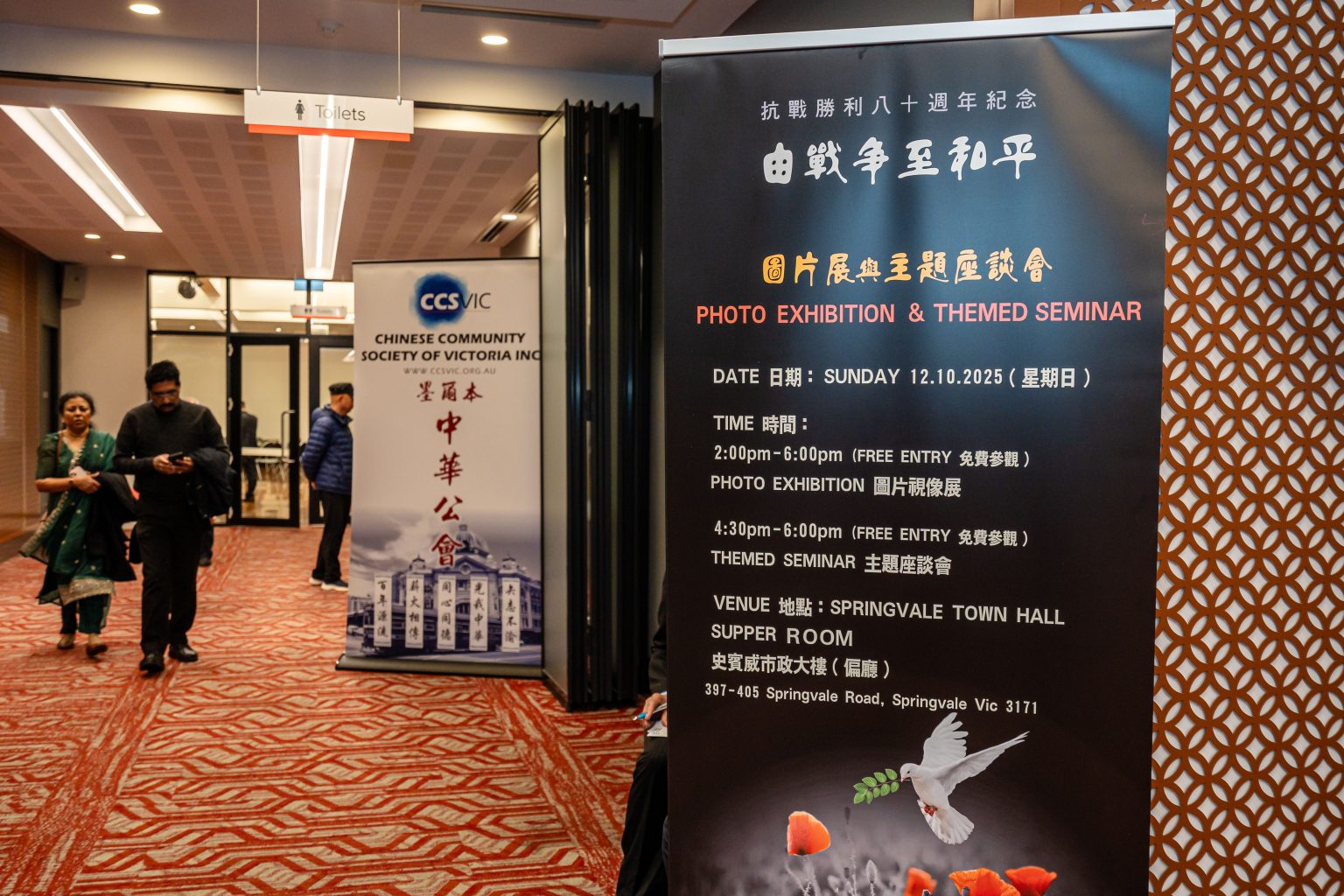
In each issue of Sameway Magazine in June, I usually write reflections on the June Fourth Massacre. The incidents that unfolded in China on that day in 1989 altered the life paths of my generation and myself. Additionally, every October, I reflect on China’s experiences over the past century. In 2011, encouraged by Taiwanese historian Dr. Gary Lin Song-huan, Sameway published a special commemorative edition every two months leading up to the centenary features publication of Republic of China. That October, we released the Centennial Special Edition exploring a century of modern Chinese history. This year marks the 80th anniversary of the victory over Japanese invasion of China. Not only did China hold a military parade on September 3rd, but Melbourne’s overseas Chinese community also seized this opportunity to organize various commemorative events.
While China’s victory in the War against Japan invasion is undoubtedly a cause for celebration among global Chinese communities, earlier this year, Mr. Bill Lau of the Chinese Youth Society of Melbourne CYSM discussed with me: What connection can today’s generation, raised in Melbourne, possibly have with the War? What should this generation commemorate? How could the Nanking Massacre, the Siege of Shanghai, and the major battles be connected to their generation? At the time, I suggested that the Sino-Japanese War could be traced from the September 18 Incident of 1931, through the Xi’an Incident of 1936 and the Marco Polo Bridge Incident of 1937 that ignited full-scale war, ending in 1945. Doesn’t this resemble Russia’s invasion of Crimea in 2013, and the ongoing Russia-Ukraine conflict that has now stretched beyond the past three years?
Though Japan’s invasion of China unfolded on Chinese soil while the European war had yet to begin, it was entangled in the complex web of alliances and rivalries among nations worldwide. The European war erupted two years later, while the Pacific War saw U.S. entry after the 1941 Pearl Harbor attack. This demonstrates how the Sino-Japanese War continuously constrained the progress of the German-Japanese alliance. Reflecting on this historical period, I believe it offers profound insights into the unfolding global landscape today.
In China, everything operates under state control. The national history taught to students is entirely written by the Communist Party, and the resistance against Japan has historically received scant mention. Yet in recent years, China has vigorously promoted the narrative that the Communist Party led the anti-Japanese struggle. By stoking anti-Japanese sentiment, it has ignited Chinese nationalism, turning condemnation of Japanese militarism into official policy. On the 70th and 80th anniversaries of the War of Resistance, China held grand military parades to showcase its growing national strength. Consequently, the facts surrounding the War have garnered attention within Chinese communities worldwide.
The question of who led the resistance against Japan is actually quite straightforward to discern. When Japan began its aggression against China, the Chinese Communist Party had only recently been established and had not yet assumed governance over China. Its military strength was nowhere near what it is today. To describe the Communist Party as the main force in the resistance at that time, or as leading China’s fight against Japan, defies basic common sense. It is evident that over the past two decades, the renewed emphasis on the hatred of Japan’s invasion of China and its current threats to China is nothing more than political propaganda, not worthy of serious debate. Yet, under prolonged political indoctrination, it is indeed concerning to consider how well the younger generation of Chinese, raised in today’s China, truly grasp the facts of the Sino Japannese War.
In the commemorative events organized by various Melbourne groups this year, Mr. Bill Lau particularly emphasized that the cultural variety show should center on presenting history, allowing performers and audiences alike to revisit authentic historical events. Additionally, community education was conducted through bilingual historical photo exhibitions and the publication of a special publication. I believe this is a very sound approach. However, at one symposium I attended, certain community leaders focused solely on condemning the Communist Party for seizing mainland power through the war effort. They clearly exploited the commemoration as a platform for political posturing, which was deeply disappointing.
Undoubtedly, the eight-year War of Resistance exhausted the Nationalist forces while the Communists conducted propaganda and education campaigns, winning popular support. Furthermore, the Nationalist government’s corrupt and incompetent rule led to a deteriorating post-war economy, ultimately resulting in the transfer of rule in China and shaping today’s political landscape. It can be said that Japan’s invasion profoundly influenced contemporary Chinese politics. However, portraying this war solely as a calamity brought about by the Communist Party does not tell the whole story.
For those of us who grew up and were educated in Hong Kong or overseas Chinese communities with open access to information, commemorating the resistance against Japan should deepen our understanding of today’s global landscape. As for the next generation or younger cohorts, I firmly believe we bear the responsibility to preserve contemporary historical events through media. We must enable them, through education, to develop critical thinking skills and uncover the truth of history.
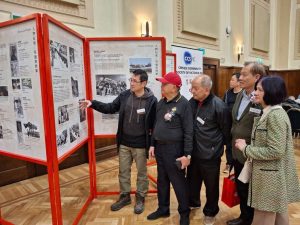
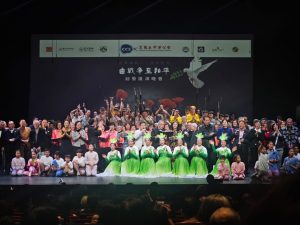
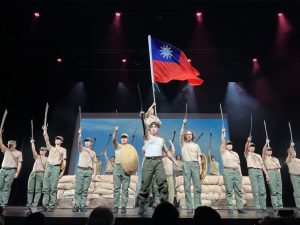
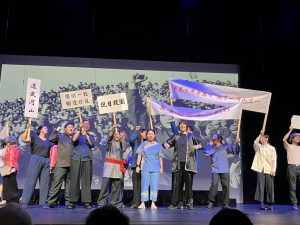
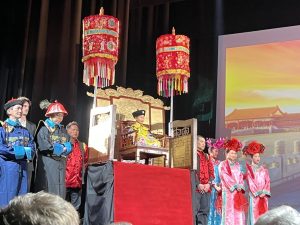
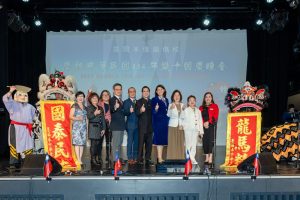
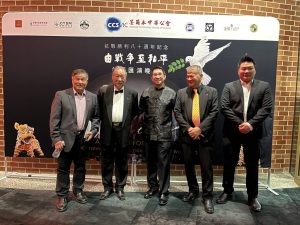
Mr. Raymond Chow
Published in Sameway Magazine on 24 October 2025
Features
History Written Under Control: Comparing East and West, and Resisting Twisted Narratives
Published
3 days agoon
October 23, 2025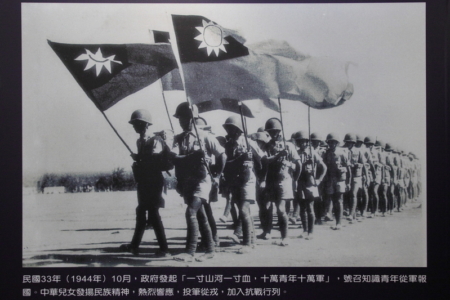
East And West’s Different Historical Views
History helps us understand and learn from the past. Most people agree that it is important, but the way Eastern and Western countries record history can be very different. These differences can cause confusion, disagreements, or even disputes over what really happened.
With the rise of digital media, how countries tell the story of WWII can be very different. China’s role in the war is described in various ways, showing how the media can sometimes twist history with propaganda or misinformation. We hope to cite examples of how the role of China in WWII has been documented differently, in order to detail the importance of the media’s role in twisting historical events through propaganda and disinformation.
First, China and Western countries record history differently. In the West, historical documents are stored in archives, and writers can usually record events freely. In contrast, historical China relied on a chain of official historians who copied records left earlier dynasties to write about the past dynasty. These recording historians couldn’t openly record events that will criticize the then emperors (such as iron fist rulership), as doing so could put them and their families in danger or even get exterminated.
Of course, Western history isn’t perfect either. From an outsider’s point of view, people often see the same events differently, even on how a country is invaded. For example, any elderly Chinese might strongly defend China’s actions in the Sino-Japanese wars, while western scholars may consider many factors like land disputes, political conflicts, and ideology when explaining about the war.
Western countries often value knowledge and individual thinking for everyone. China, on the other hand, has a long history of centralized control over information. Even before printing technology was established, China had a unified written language and centralized monitored historians, to allow government control on how history was recorded. Japan had a central government too, but regional differences in culture and record-keeping still existed. Smaller countries like Laos relied more on local communities and oral traditions to preserve historical records. These examples show that whether a society values individualism or collectivism can greatly affect how history is written and remembered.
Because of this difference, history can easily be twisted when personal or political interests are involved. Today, traditional historians are fading into the sunset, slowly being replaced by 24/7 news media. If countries continuously presenting biased or incomplete versions of events, the public’s understanding becomes confused and biased. Governments or storytellers may ignore events that don’t fit their desired narrative, leaving important truths hidden.
China’s current education on the Sino-Japanese Wars
For example, Chinese textbooks often present the CCP as the main force leading the fighting against the Japanese, but that’s not entirely accurate. The Nationalist leader Chiang Kai-shek actually led the early efforts, reluctantly joining forces with the CCP after the Xi’an Coup. In fact, Japan’s invasion of China began earlier than the 1937 Lugou Bridge / Marco Polo Bridge Incident.
The CCP often blames Manchukuo for allowing the Japanese army in invading Manchuria, but this reflects only part of the truth. While the Manchurians had some influence over that area, Manchuria was controlled by warlords, not the central Chinese government, that was Republic of China at that time. Puyi, the puppet leader, was influenced by advisors to took money from Japan and became a puppet. Looking at events from different perspectives shows how interpretations can be distorted. For example, one could ask: what if Chiang Kai-shek delayed action to avoid alerting the enemy? Even small changes like this can shape how we view the invasion’s seriousness.
The CCP also emphasizes that Chinese soldiers fought bravely while Western countries refused to help. Their narrative suggests that foreigners only cared about land and resources of China, but that’s only partly true. Britain did pressure the Qing dynasty to give up Hong Kong, but European countries and the USA avoided sending troops mainly for diplomatic reasons. Before Japan attacked Pearl Harbor, sending forces to China could have risked a more extensive war with Japan. Instead, the West provided weapons and supplies to the Nationalist government at that time. In hindsight, this situation is somewhat similar to the recent, three year-long Russian-Ukraine war.
The Tale of Australian William Donald
CCP influence has affected global perceptions, leading some Western countries to avoid independent research. Many Australians, for example, are unaware that some of their citizens had played key roles in the War in China with Japan. One notable figure is the Australian journalist William Henry Donald, who was deeply involved.
Donald started as a journalist and foreign correspondent before becoming an advisor of the Nationalist government in China. During the 1911 Revolution, he helped Dr Sun Yat-sen’s short-lived government negotiate with foreign powers, moving beyond reporting to active mediation. Initially, Donald admired Japan and even received a Japanese honour for his coverage of the Russo-Japanese War (1904–05). By 1915, however, he criticized Japanese imperialism and warned the West about its expansionist actions.
Donald played a crucial role during the Xi’an Coup, mediating between major Chinese leaders. His efforts helped secure Chiang Kai-shek’s release and the formation of a reluctant alliance with the CCP. Later, he disagreed with Chiang in 1940 over policy toward Germany. During the Pacific War, Donald was captured in Manila in 1942 but was freed in 1945. Afterward, his influence gradually declined.
Despite his decades-long involvement, historians have largely overlooked Donald’s contributions, whether advising Chiang, mediating coups, or supporting Dr Sun Yat-sen. His role is complex and less dramatic than headlines like “Chiang vs. Mao” or “Japan Invades”, so it is often ignored. In Australia, documentation about him is limited, with primary sources stored in China or specialized archives. Because Australian history education focuses more on colonial and ANZAC history, Donald’s contributions have faded from public awareness.
Chinese authorities rarely highlight Donald either. He was not a combat hero, and his advisory role could be politically inconvenient. The CCP tends to downplay internal compromises or foreign contributions, focusing instead on its own post-war achievements. Even in normal broadcasting, the media celebrating China’s journey post-war isn’t too different.
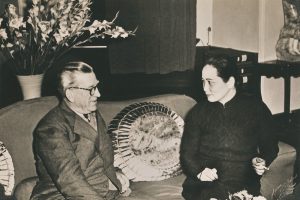
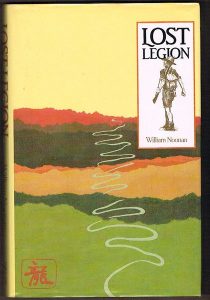
How CCP Centralization Affects Historical Documentation
Unlike many Western countries, which value history for education and heritage, China often emphasizes national pride over strict accuracy. This approach leaves younger generations unaware or unwilling to question historical events. The CCP has used systematic omission and withdrawal of all related records— sometimes called ‘amnesia therapy’ (失憶治療法) by scholars — to hide uncomfortable truths, like the Tiananmen Square Massacre. By controlling school curricula, the party successfully shapes collective memory, erasing or reframing events to suit its narrative.
In contrast, Western countries often debate controversial history publicly, offering multiple perspectives for critical analysis. The CCP also shapes views of other nations, like Japan, portraying it as a continued threat even though imperialism has ended. These examples show that history is rarely objective; it can be twisted to serve political goals. Recognizing these distortions is vital for developing critical thinking in future generations.
The CCP’s indoctrination is well-known but not unique in Asia. Postwar Japan focused on pacifism and democracy in textbooks, downplaying imperial aggression. South Korea and Taiwan have alternated between nationalist and democratic interpretations. Smaller countries like Vietnam, Laos, and Cambodia relied on oral histories and local records, allowing communities to shape memory. These examples show that centralized versus decentralized record-keeping strongly affects how generations perceive the past, emphasizing that control over history shapes national identity.
Australia’s Involvement in the Second Sino-Japanese War
The CCP’s influence on history goes beyond China. Cultural programs like Confucius Institutes promote party-aligned narratives internationally, shaping textbooks, museum exhibits, and media coverage abroad. Ignoring other perspectives, like those from Australia or Japan, can create a skewed understanding of WWII. This shows that controlling historical narratives isn’t just domestic indoctrination; it’s also a form of soft power.
Australia has made its own mistakes in recording history. While it doesn’t claim any credit as the CCP, it has largely hidden its involvement in China through the little-known Mission 204. In 1942, around 250 Commonwealth troops, including 48 Australians from the 8th Division, were sent to aid Chiang Kai-shek. Despite logistical difficulties and tense relations with Chinese commanders, these troops carried out successful operations, including ambushes and a notable raid on Japanese barges near Poyang Lake.
Mission 204, however, was withdrawn in November 1942 due to internal politics and health issues in the unit. Later, the Chinese Nationalist Party was forced to retreat to Taiwan by the CCP. For decades, Australia largely ignored or hid this history, only resurfacing clues in 2023. While avoiding CCP politics is understandable, it’s unfair to deny the public knowledge of Australia’s wartime actions, which effectively allows the CCP to dominate the narrative.
These examples show that celebrations of China surviving the Sino-Japanese War and WWII are often shaped by political agendas and media control. This leaves the public with incomplete, biased, or deliberately obscured views. Without critical analysis or access to multiple sources, key figures, like William Henry Donald, and events can be forgotten or misrepresented.
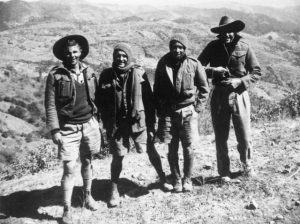
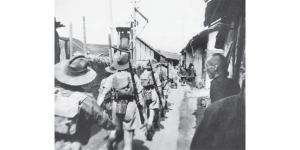
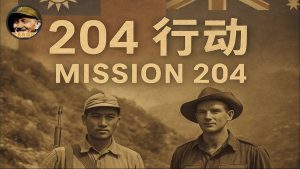
Viewing History Through A Critical Lens
Furthermore, whether in textbooks or news reports, the same historical events can be portrayed very differently depending on who tells the story. Motivations such as national pride, political advantage, or control over public narrative all highlight the need for careful comparative study. Governments exploit each new, impressionable generation by spreading half-truths or even outright lies under the guise of patriotism and unity. When in reality, it’s about framing themselves as ‘heroes’. The longer this continues, the fewer people will question the fabricated histories imposed by those in power.
When reading history, we shouldn’t take it at face value. What gets celebrated is rarely the full story, as many crucial voices stay buried under mainstream narratives. To avoid being misled by half-truths or polished myths, readers must take proactive steps to seek balance and truth.
For example, readers can compare news sources from different cultural backgrounds. Take the case of war survival anniversaries: a Chinese state outlet might glorify its own soldiers, while a Western outlet could focus on diplomatic strategy, such as why Western powers, despite ties with the invaded nation, chose not to intervene militarily. These contrasts reveal how bias shapes every narrative.
Another approach is to encourage counterfactual thinking, which is by exploring ‘what if’ scenarios to engage with history critically. Asking questions like “What if Chiang Kai-shek had acted sooner?” or”How might events differ if textbooks included multiple perspectives?” pushes readers to think beyond surface facts. By presenting alternative viewpoints side by side, educators and media can remind younger generations that history is layered, contested, and never entirely fixed.
News Media’s Historical Responsibilities
Additionally, should news outlets depend less on governmental sources, in order to report historical events to newer generations? For instance, the CCP often promotes itself as the sole hero in the Sino-Japanese war, overlooking many other factors that contributed to Japan’s defeat. To provide a fuller picture, journalists should consult academic historians from diverse backgrounds and archives. If local reporters are unable to do so, international media should avoid over-reliance on Chinese outlets, helping to diversify perspectives. Even when governments provide data, reporters must cross-check multiple sources: comparing war casualty numbers, dates, and accounts from different national archives.
To combat biased or incomplete narratives, media organizations must embrace investigative journalism. Rather than relying solely on press releases or government celebrations, journalists should explore archives, personal accounts, and lesser-known sources. This approach can uncover overlooked contributors, hidden controversies, or forgotten stories, such as the decades-long influence of William Henry Donald in China. Without such diligence, these stories risk being lost to history.
Other than Official Historical Narratives
Historical events are rarely one-dimensional. To ensure accuracy, news outlets should present both domestic and foreign perspectives. For instance, reporting on the Sino-Japanese War should not rely solely on CCP or Chinese Nationalist sources; Japanese accounts, Western observers, and even oral histories from survivors’ descendants can provide valuable insight. By comparing these perspectives, readers gain a deeper understanding of the complexity of events and can see where bias, pride, or self-interest has shaped narratives.
History is often told through the lens of nations, prominent leaders, or major battles, leaving countless contributors invisible. Unsung figures – nurses on the frontlines, translators bridging cultural and linguistic gaps, local militias defending communities, and ordinary civilians navigating war — have all shaped outcomes without formal recognition. Grassroots organizers and community leaders often mitigated famine, displacement, or political oppression, yet their stories rarely appear in mainstream textbooks. Highlighting these individuals challenges simplified nationalist accounts and invites readers to critically examine history from multiple angles. By including personal stories, letters, diaries, and oral histories, historians and educators can provide a richer, more nuanced understanding, showing that history is not only the story of leaders but also of ordinary people whose everyday decisions ripple across generations.

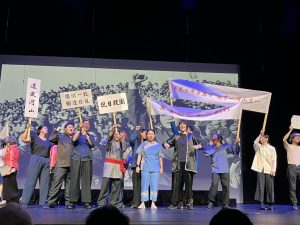
Importance of Multifaceted Historical Narrations
Historical narratives are not confined to academic debate; they actively shape contemporary geopolitics and international relations. The CCP’s control over historical interpretation has profoundly affected public perception of Taiwan, the South China Sea, Hong Kong, and Japan, often framing policies as defensive or restorative to fit a particular national narrative. Textbooks emphasizing the ‘century of humiliation’ or heroic struggles against foreign powers can reinforce domestic support for assertive policies abroad.
Understanding these manipulations shows how governments leverage history to justify policy, cultivate national sentiment, and shape international perception. Media, educational programs, and cultural diplomacy can extend this influence globally, subtly guiding how other countries interpret events involving China. Recognizing these dynamics is crucial for analysts, educators, and citizens, highlighting that history is not merely a record of the past but also a tool actively deployed to influence present-day politics and international relationships.
Digital Era’s Challenges Towards History
The landscape of historical narrative has further shifted in the digital age. Social media platforms are not just spaces for connection but arenas for ideological competition. TikTok, WeChat, YouTube, and Twitter/X have become battlegrounds for competing interpretations of history. Viral clips, memes, and algorithmically promoted content often shape perceptions more strongly than formal education. Algorithms tend to favor content that evokes strong emotions – national pride, outrage, or sensationalism – reinforcing particular viewpoints while suppressing others. Unlike these fast-moving but potentially biased feeds, traditional textbooks, though limited in perspective, are curated and vetted to ensure factual consistency.
For younger generations growing up online, cultivating media literacy, critical thinking, and the ability to cross-reference multiple sources is essential. This is not only to resist propaganda but also to engage with history in its full complexity. Encouraging discussions about the origins and credibility of online content empowers students to recognize how narrative manipulation occurs in real time. It prepares them to approach information critically throughout their daily lives.
Finally, historical reporting should be more understandable to younger generations. The media can leverage multimedia tools – short videos, infographics, timelines, and interactive articles – to break down complex events. Clear, engaging formats, using layman language and visuals, can prevent oversimplification and reduce the risk that a single, potentially biased narrative dominates public understanding.
In an age of propaganda, selective memory, and curated narratives, readers must approach history critically. By seeking multiple sources, questioning official accounts, and embracing diverse perspectives, we can resist half-truths and uncover the full story. History is not just a record of the past; it is a tool for understanding the present and shaping a more informed future. If media, educators, and citizens take these steps seriously, hidden figures like William Henry Donald and many others who shaped history behind the scenes can finally receive the recognition they deserve.
Editorial : Raymond Chow, Jenny Lun
Photo: Internet
Published in Sameway Magazine on 24 October, 2025
Features
Cohealth Service Cutoff — Victorian Government Cannot Ignore
Published
3 days agoon
October 23, 2025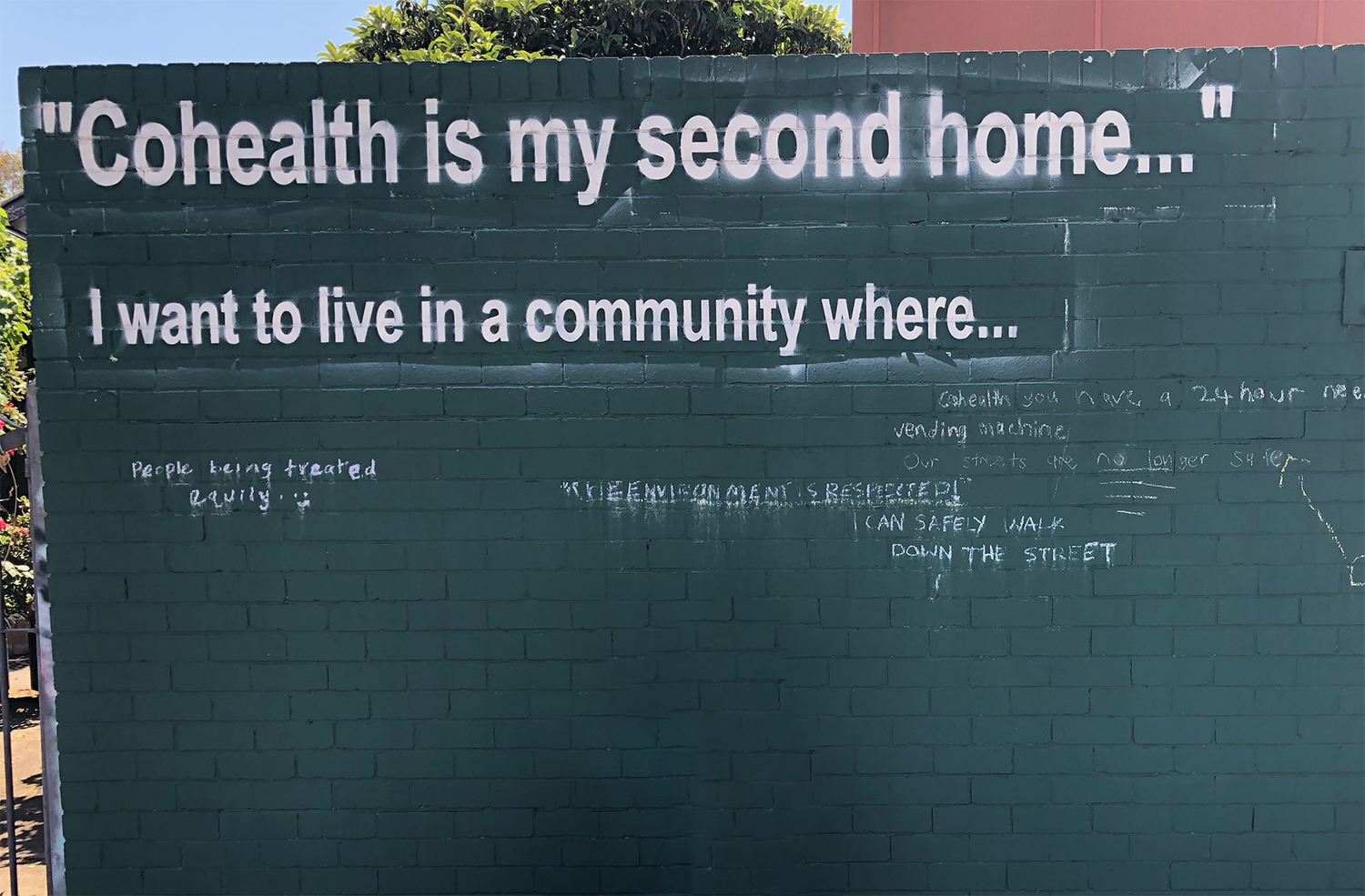
On October 16, Cohealth—one of Australia’s largest community health organizations and a non-profit medical institution—announced it would close three of its clinics. The news immediately sparked widespread public debate and criticism. The affected clinics are located in Collingwood, Fitzroy, and Kensington. The Fitzroy and Kensington clinics will cease general practitioner (GP) and consultation services this December, though they will continue providing specialized support for alcohol, drug, and domestic violence issues. The Collingwood centre is scheduled for full closure next June.
The closures will directly impact approximately 12,500 patients, resulting in 20 doctors losing their jobs and 44 nurses facing reassignment or redundancy. These clinics have long provided vital primary healthcare services to low-income individuals, the homeless, refugees, domestic violence survivors, and those with chronic illnesses, serving as an indispensable health support network within the community. However, due to insufficient funding, rising costs, and operational pressures, these services are now being forced to cease.
Nicole Bartholomeusz, CEO of Cohealth, stated that the cessation of services reflects “multiple and complex pressures, including decades of underinvestment, aging infrastructure, and funding models that don’t match actual needs or the type of care required.” She noted: “The funding we receive is only sufficient to provide standard care, but we actually serve high-need patients who often require extended appointments and comprehensive case management tailored to each individual.”
Cohealth’s current Medicare subsidy only covers physician salaries, failing to account for nurses, receptionists, and other operational costs. As wages and supply costs rise, the annual gap between clinic operating expenses and Medicare funding continues to widen.
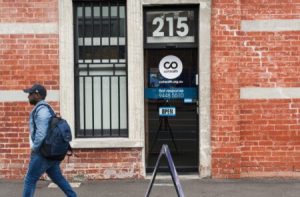
Reforms Too Late, Support Too Little
In truth, Cohealth’s predicament did not emerge suddenly but resulted from years of accumulated challenges. Although the federal Labor government has pushed Medicare reforms in recent years to enhance the sustainability of the universal healthcare system—such as the upcoming Bulk Billing Practice Incentive Program (BBPIP) launching November 1st, which will expand Medicare coverage, encourage clinics to maintain bulk billing, and provide additional funding for facility upgrades and team expansion— This initiative aims to improve access and affordability of healthcare services, with approximately 4,800 clinics expected to benefit.
However, for Cohealth, this reform appears to have come too late. The root problem lies not solely at the federal level, but in the Victorian government’s long-standing neglect of the actual health needs within grassroots communities. The poverty, homelessness, addiction, and trauma issues plaguing local communities have long exceeded the capacity of standard clinics. Yet the Victorian government has failed to provide additional support or establish stable funding mechanisms to sustain non-for-profit healthcare providers.
Cohealth identifies two primary causes for the current crisis: First, insufficient Medicare funding from the federal government for managing complex patients; Second, the Victorian government has failed to fund upgrades for the aging facilities at the Collingwood clinic.
Cohealth has repeatedly called for government support over the years. As early as 2022, Cohealth issued a statement noting that while they supported the government’s health-focused budget, the community health model—which played a critical role during the pandemic—was once again being overlooked. At that time, Cohealth emphasized the need for comprehensive investment across the entire healthcare sector to strengthen the health system as a whole.
The clinic’s facilities have long been outdated, with roof leaks forcing appointment cancellations. Despite multiple funding applications to authorities over the years, no substantive response has been received. Infrastructure Victoria’s report highlights that government funding for community services is fragmented and inadequate. The federal government has yet to establish dedicated funding for community health infrastructure. Even though the Australian government allocated $117 billion to health and medical services for 2024-25, community health organizations received only 0.3% of Victoria’s annual health infrastructure expenditure of approximately $2 billion.
Amid chronic funding shortages and sluggish government reforms, the state government’s disregard for community needs and inaction ultimately sealed the fate of these clinics. This underscores the state government’s core responsibility in ensuring the continuity of primary healthcare services.
Who is accountable for healthcare quality and service delivery?
In fact, community healthcare systems did not originate from government initiatives but from charitable and faith-based traditions. Early hospitals were often founded by churches or charitable organizations with a simple mission: to provide basic care to the poor and vulnerable through empathy and compassion. Healthcare then embodied social conscience rather than being a product of policy or systems.
As society modernized and public health concepts emerged, governments gradually assumed responsibility, incorporating health into the realm of “public duty.” The original intent behind this shift was noble—to ensure equal access to healthcare for all. Yet the process of institutionalization and bureaucratization introduced new challenges: the original “people-centred” care became diluted by layers of administrative procedures and economic logic. Healthcare services increasingly emphasized efficiency and output, gradually losing its human warmth.
Non-profit medical institutions like Cohealth represent a continuation of this historical trajectory. They uphold the founding spirit of charitable healthcare—serving vulnerable communities while upholding the belief that everyone deserves the right to health and equal access to medical care. Yet in reality, these organizations rely on government subsidies and unstable funding sources to sustain their operations.
The contradiction lies in the fact that as societies grow wealthier, public healthcare systems should be better equipped to protect the vulnerable. Yet the opposite occurs: medical costs rise relentlessly, resource distribution grows increasingly unequal, and healthcare services become ever more commoditized. In this environment, doctors are forced to complete consultations within “six-minute appointments,” nurses and receptionists operate at breaking point, and patients slip through the cracks of the system, overlooked.
Yet when reflecting on responsibility, the question may extend beyond “Who is to blame?” to “Where should healthcare be headed?”
Should we pursue the endless quest to “cure every disease”? Or should we return to healthcare’s fundamental purpose—ensuring everyone accesses basic health protection?
When the wealthy pay more for faster, better care while the poor endure long queues, has the ideal of equality already been swallowed by market logic?
Take Hong Kong, for instance. As a low-tax society, its citizens enjoy public healthcare at minimal cost—subsidized for life simply by holding a Hong Kong ID card. However, with an aging population and healthcare staff shortages, the public system has been chronically overburdened, leading to months-long waits for emergency rooms and specialist appointments. Consequently, the affluent middle and upper classes turn to private clinics, trading money for efficiency. This creates a healthcare system that appears equitable on the surface but is fundamentally stratified: the government guarantees access to services but not equal speed or quality. In other words, everyone has the right to medical care, but whether you can get better quickly and where you receive treatment depends on how much money you have.
Canada’s public healthcare system, meanwhile, is more idealistic. All residents can access free public healthcare with a health card, free from concerns about high costs. However, long waiting times and uneven resource distribution transform “free” into another form of “cost.” When demand far exceeds supply, fairness and accessibility inevitably clash.
Moreover, should healthcare prioritize “universal access” or ‘quality’? Should governments provide “basic care” or “comprehensive coverage”?
Comparisons with China, Hong Kong, and Taiwan
From an international perspective, Australia’s public healthcare system (Medicare) differs significantly from those in mainland China and Taiwan, each with distinct advantages and disadvantages. Mainland China’s system, dominated by public hospitals, subsidizes basic care through social medical insurance (urban employee/resident insurance). However, due to its massive population and concentration of medical resources in major cities, primary community clinics often struggle to handle high-demand patients—particularly low-income groups and those with chronic conditions. This mirrors Cohealth’s current situation: “resource concentration leading to overflowing demand.”
Taiwan adopted a National Health Insurance (NHI) model emphasizing “one health insurance card, nationwide healthcare coverage,” ensuring basic medical services for all regardless of urban/rural location or income level. NHI strengthens primary care clinics through subsidies and incentives, stabilizing the family doctor system. Nevertheless, disparities in healthcare resource distribution between urban and rural areas persist, and wait times for specialist care can remain excessively long.
In contrast, Australia’s Medicare system pursues fairness and accessibility in theory. Yet in practice, non-profit primary care institutions face chronic funding shortages and aging facilities. While serving predominantly vulnerable populations, these clinics often shoulder service volumes exceeding subsidy coverage. This structural contradiction creates a significant gap between the system’s ideals and its actual service capacity, highlighting a common challenge faced by vulnerable groups under different systems: even with “systemic safeguards,” they may still be marginalized due to inadequate resource allocation.
Australia’s Core Healthcare Contradiction
Returning to Australia itself, the core issue of its healthcare system isn’t a lack of total funding, but rather structural contradictions arising from resource allocation, institutional design, and policy priorities. Medicare is primarily designed for “standard medical services” such as general consultations, basic tests, and medications. However, it does not provide corresponding subsidies for the time, labour costs, and interdisciplinary integrated care required for high-need or complex patients. This leaves vulnerable groups unable to access truly comprehensive healthcare under the existing system.
Non-profit community clinics like Cohealth exist precisely to fill this gap. They offer extended consultations, case management, mental health counselling, addiction and domestic violence support, and even multidisciplinary integrated programs—services standard GP clinics struggle to provide. However, these intensive services are not fully subsidized by Medicare. Combined with limited state investment in primary care infrastructure, clinics face chronic financial strain, ultimately forcing service reductions or partial closures.
Cohealth’s partial closures reflect a deep-seated contradiction within Australia’s healthcare system: equity and accessibility do not equate to substantive care guarantees for high-need populations. While everyone ostensibly has the right to medical care, those requiring prolonged attention and individualized management often survive only by navigating systemic gaps. The institutional design itself thus creates an “invisible inequity” for high-need patients.
Australia’s healthcare also grapples with the dilemma of balancing universal coverage and quality. On one hand, the system must ensure everyone receives at least basic treatment; on the other, complex patients require sufficient time, specialized support, and case management. In reality, however, insufficient government funding and a narrow subsidy structure make achieving both goals difficult. Doctors are forced to rush through consultations, nurses and receptionists operate at capacity, while vulnerable patients languish on waiting lists. Non-profit clinics like Cohealth strive to fill these gaps, but persistent financial pressures and policy constraints render “humanized healthcare” a luxury in practice.
In other words, the core issue with Australia’s public healthcare system isn’t merely about assigning responsibility, but whether the system can return to its founding principle: ensuring everyone accesses basic healthcare while providing high-need patients with adequate resources and compassionate support when required. Cohealth’s predicament serves as a stark warning: without structural adjustments to resource allocation by government and society, the ideal of fairness remains unattainable, and vulnerable groups will continue to be marginalized by the system.
The Victorian Government’s Indisputable Responsibility
While medical policy is set by the federal government, state governments bear responsibility for implementing it according to local realities. Cohealth’s inner-city service area has a population receiving government living subsidies that exceeds the Australian average by more than double, indicating many residents cannot afford private services. The Victorian Government’s refusal to provide financial support to institutions like Cohealth demonstrates a disregard for vulnerable communities.
A similar situation exists in elder care for multicultural communities. While federal funding supports aged care services, research indicates that non-English-speaking seniors benefit most from living in facilities that accommodate their cultural and linguistic backgrounds. Yet, emerging senior communities like the Chinese diaspora receive minimal Victorian government assistance to build suitable aged care facilities. Since 2014, Labor leader Andrews has repeatedly proposed policies to purchase four plots of land for the Chinese and Indian communities to build elderly care facilities. Yet to this day, the Victorian Department of Health continues to leave these sites vacant, failing to hand them over to community organizations to develop services. This demonstrates a dereliction of duty by government officials. This situation bears striking similarities to Cohealth Community Health Services ceasing operations today due to neglect. Should the Victorian Government conduct a thorough review of the Department of Health’s operations?
Editorial : Liz Li, Jenny Lun
Photo: Internet
Published in Sameway Magazine 24 October 2025
Listen Now


October – History

History Written Under Control: Comparing East and West, and Resisting Twisted Narratives

Cohealth Service Cutoff — Victorian Government Cannot Ignore
Anthony Albanese Meets Trump to Discuss Minerals, Defense, and Trade
Louvre Jewelry Heist Steals Historic Treasures

Fraudulent ivermectin studies open up new battleground

Cantonese Mango Sago

FILIPINO: Kung nakakaranas ka ng mga sumusunod na sintomas, mangyaring subukan.

如果您出現以下症狀,請接受檢測。

保护您自己和家人 – 咳嗽和打喷嚏时请捂住

U.S. Investment Report Criticizes National Security Law, Hong Kong Government Responds Strongly

China Becomes Top Destination for Australian Tourists, But Chinese Visitor Return Slows

What Is the Significance of Victorian Premier Jacinta Allan’s First Visit to China?

Albanese Visit to UK Focuses on Domestic Reform, Not Republican Debate

Optus Faces Another “000” Outage, Singtel Bonus Sparks Controversy
Trending
-

 COVID-19 Around the World4 years ago
COVID-19 Around the World4 years agoFraudulent ivermectin studies open up new battleground
-

 Cuisine Explorer5 years ago
Cuisine Explorer5 years agoCantonese Mango Sago
-

 Tagalog5 years ago
Tagalog5 years agoFILIPINO: Kung nakakaranas ka ng mga sumusunod na sintomas, mangyaring subukan.
-

 Uncategorized5 years ago
Uncategorized5 years ago如果您出現以下症狀,請接受檢測。
-

 Cantonese - Traditional Chinese5 years ago
Cantonese - Traditional Chinese5 years ago保护您自己和家人 – 咳嗽和打喷嚏时请捂住
-

 Uncategorized5 years ago
Uncategorized5 years agoCOVID-19 檢驗快速 安全又簡單
-
Uncategorized5 years ago
在最近的 COVID-19 應對行動中, 維多利亞州並非孤單
-
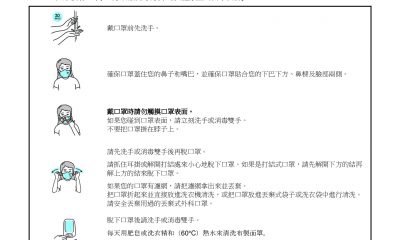
 Uncategorized5 years ago
Uncategorized5 years agoHow to wear a face mask 怎麼戴口罩


